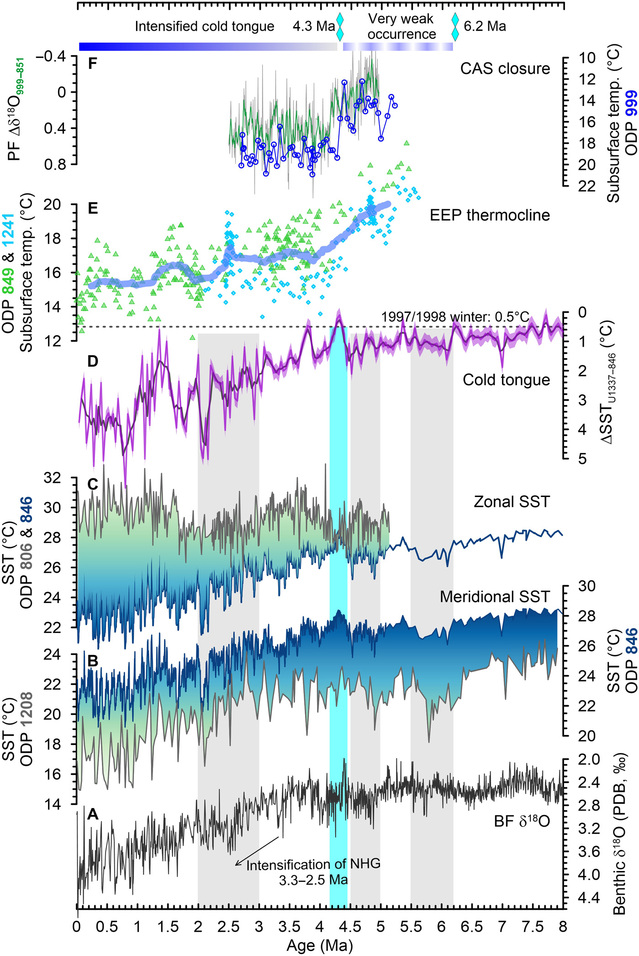Jingjing Liu1, Jun Tian1*, Zhonghui Liu2*, Timothy D. Herbert3, Alexey V. Fedorov4, Mitch Lyle5
1 State Key Laboratory of Marine Geology, Tongji University, Shanghai 200092, China.
2 Department of Earth Sciences, The University of Hong Kong, Hong Kong, China.
3 Department of Earth, Environmental and Planetary Sciences, Brown University, Providence, RI 02912, USA.
4 Department of Geology and Geophysics, Yale University, New Haven, CT 06520, USA.
5 College of Earth, Ocean, and Atmospheric Sciences, Oregon State University, Corvallis, OR 97331, USA
Abstract:
The timing and mechanisms of the eastern equatorial Pacific (EEP) cold tongue development, a salient feature of the tropical ocean, are intensely debated on geological time scales. Here, we reconstruct cold tongue evolution over the past 8 million years by computing changes in temperature gradient between the cold tongue and eastern Pacific warm pool. Results indicate that the cold tongue remained very weak between 8 and 4.3 million years ago, implying much weaker zonal temperature gradients prevailing during the late Miocene–Pliocene, but then underwent gradual intensification with apparently increasing sensitivity of the cold tongue to extratropical temperature changes. Our results reveal that the EEP cold tongue intensification was mainly controlled by extratropical climate.

Full Article:http://advances.sciencemag.org/content/5/4/eaau6060


